
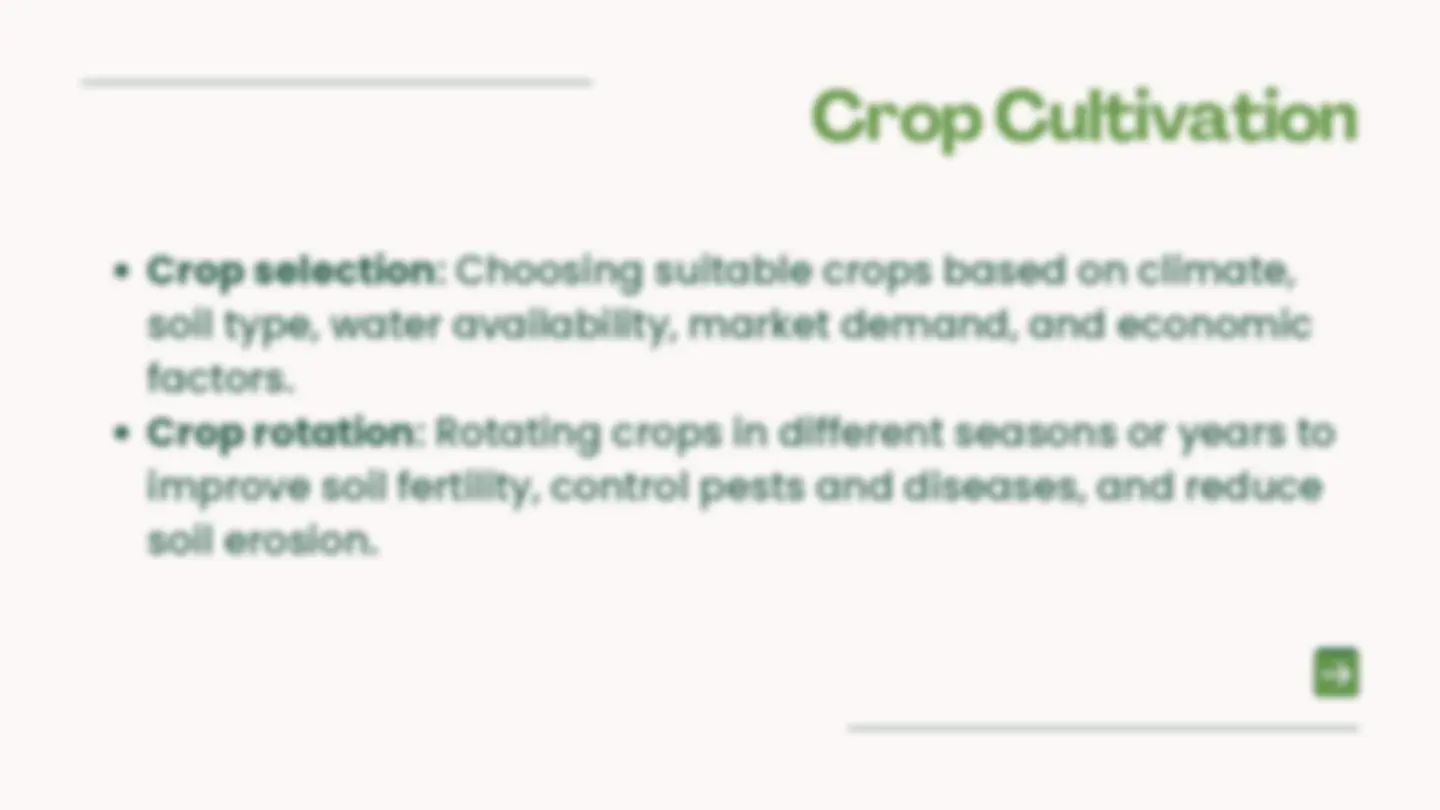
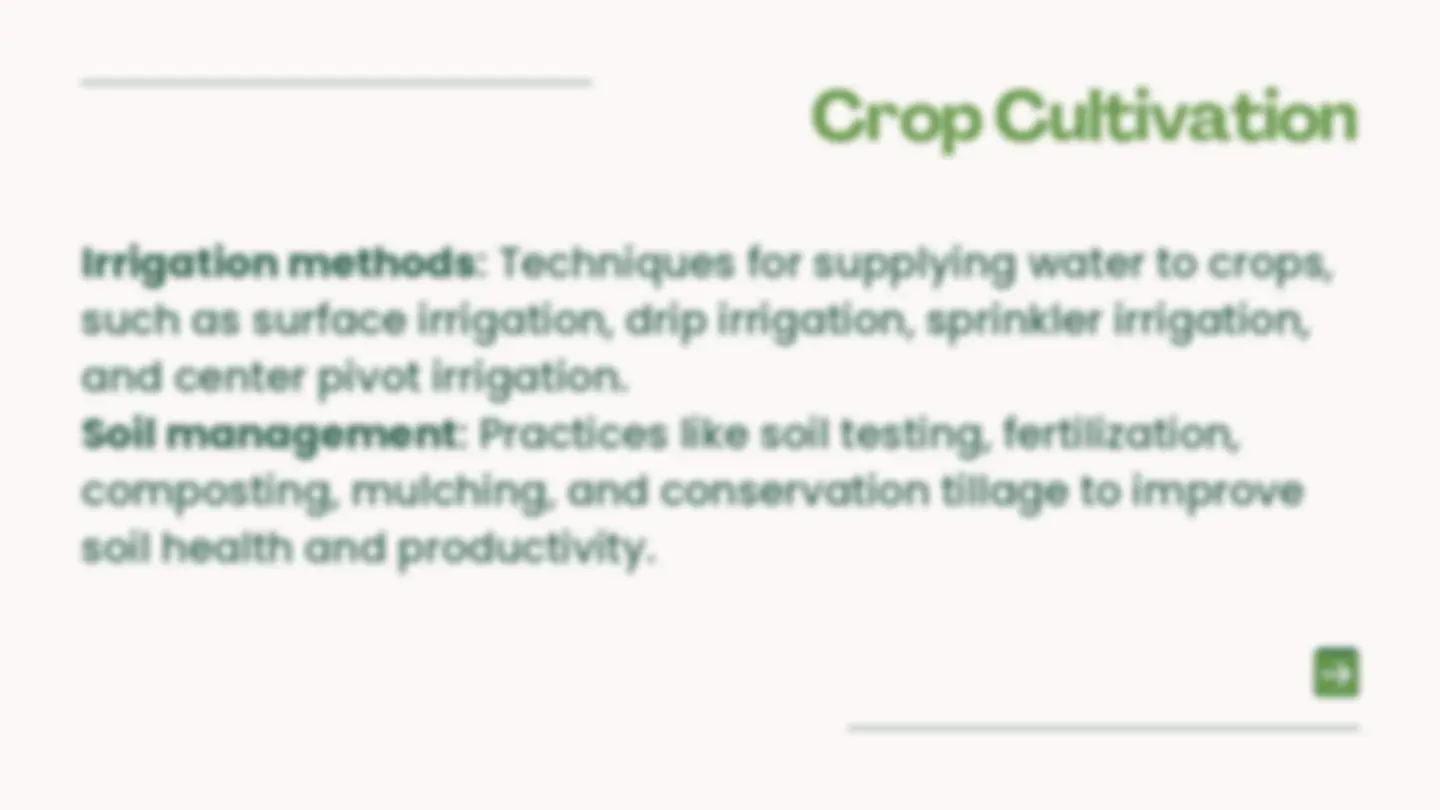
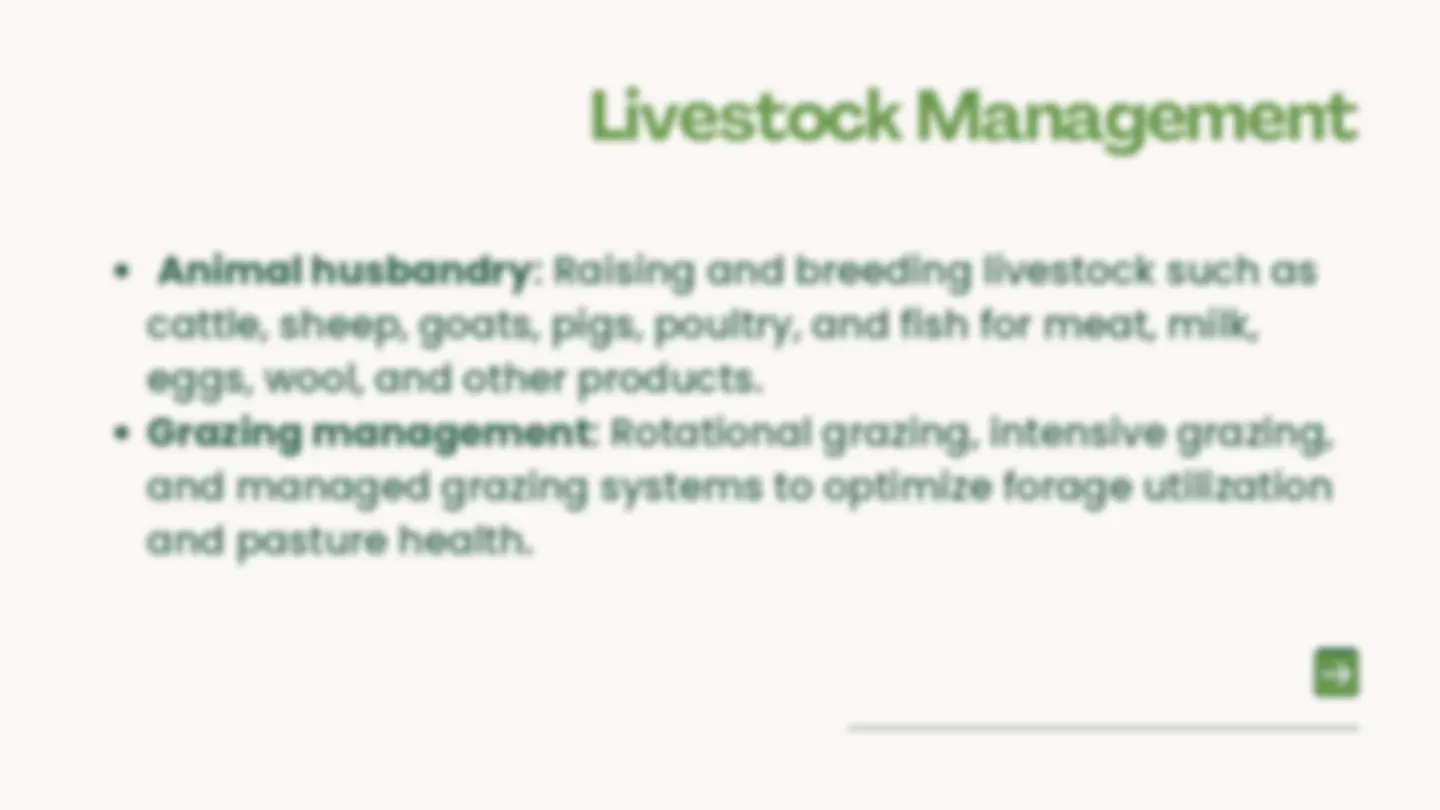
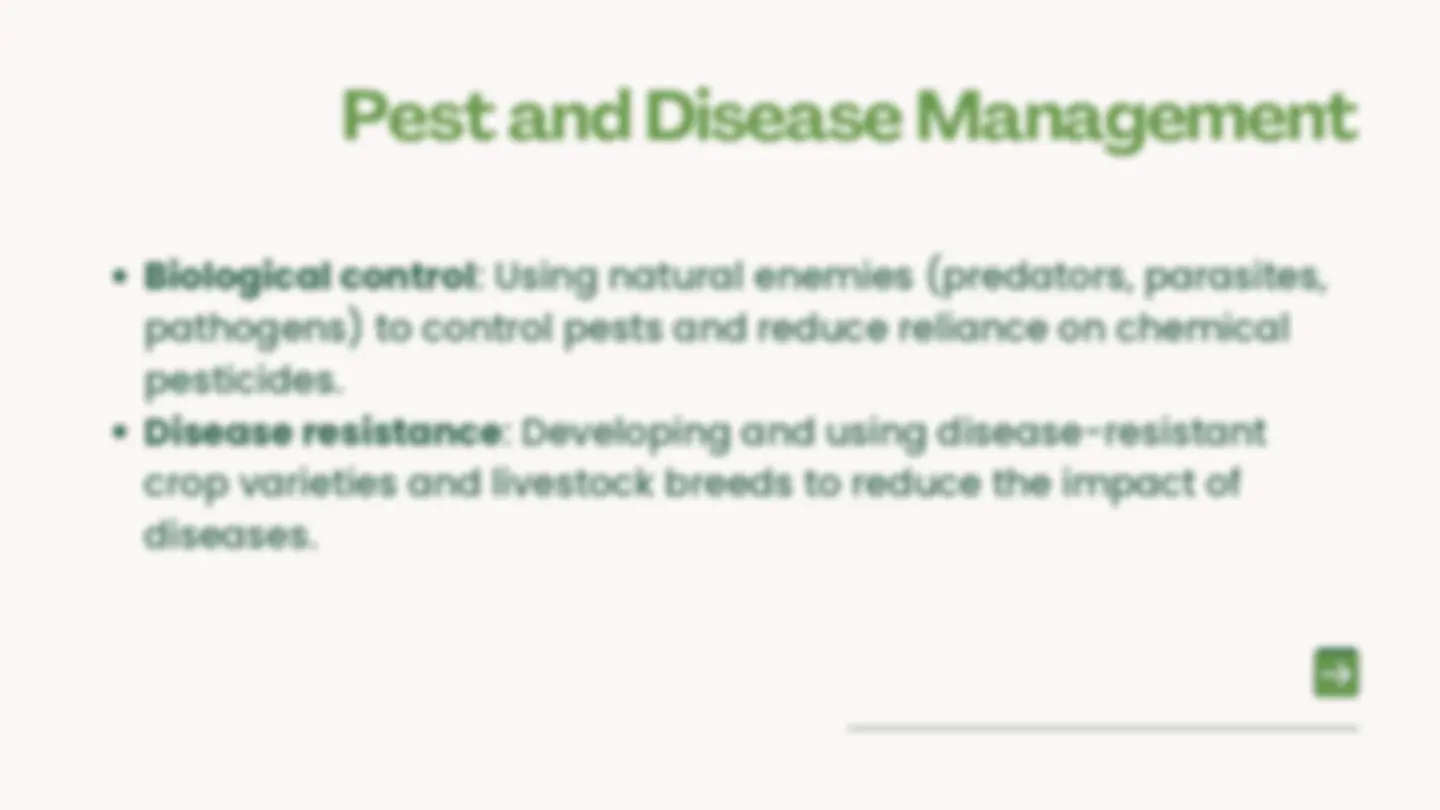
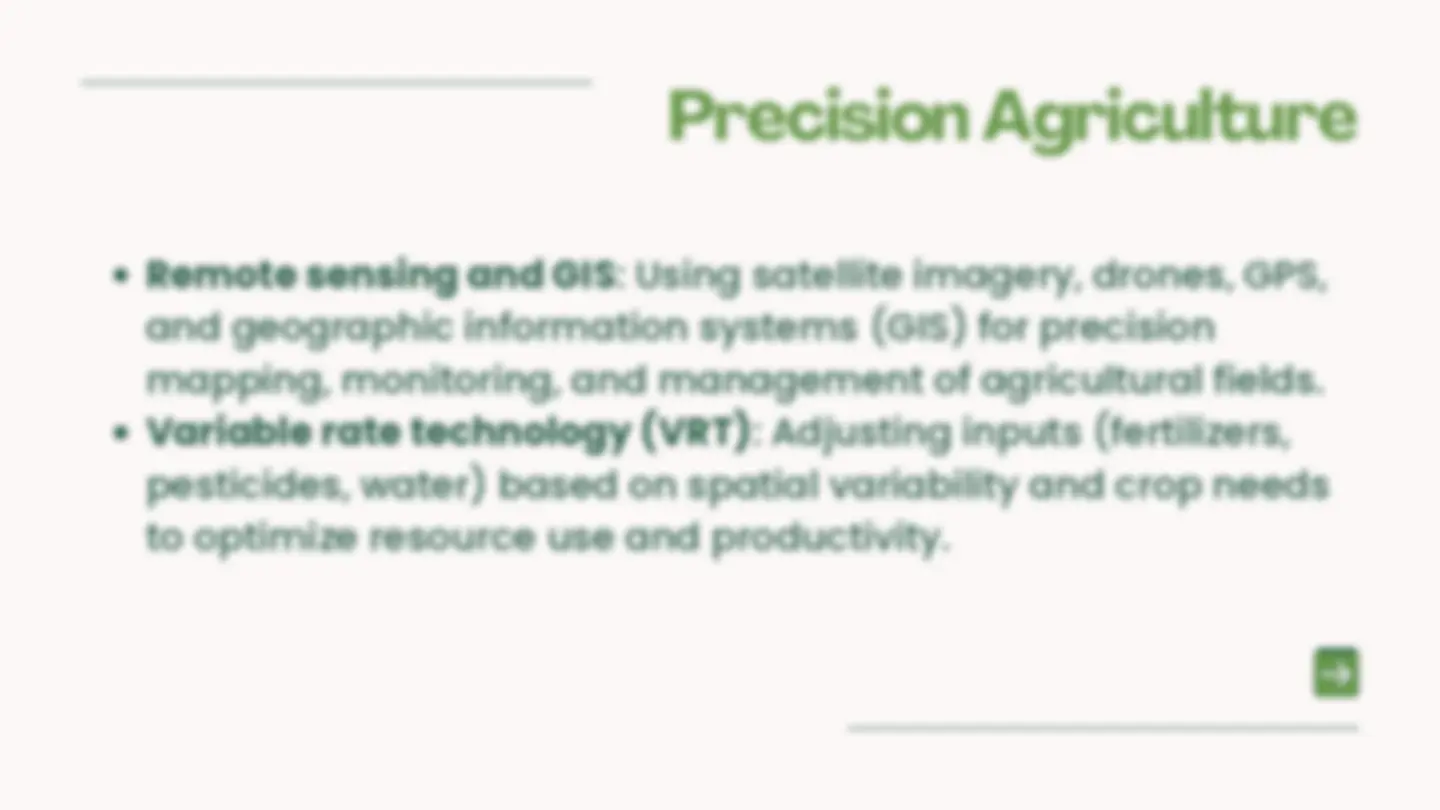
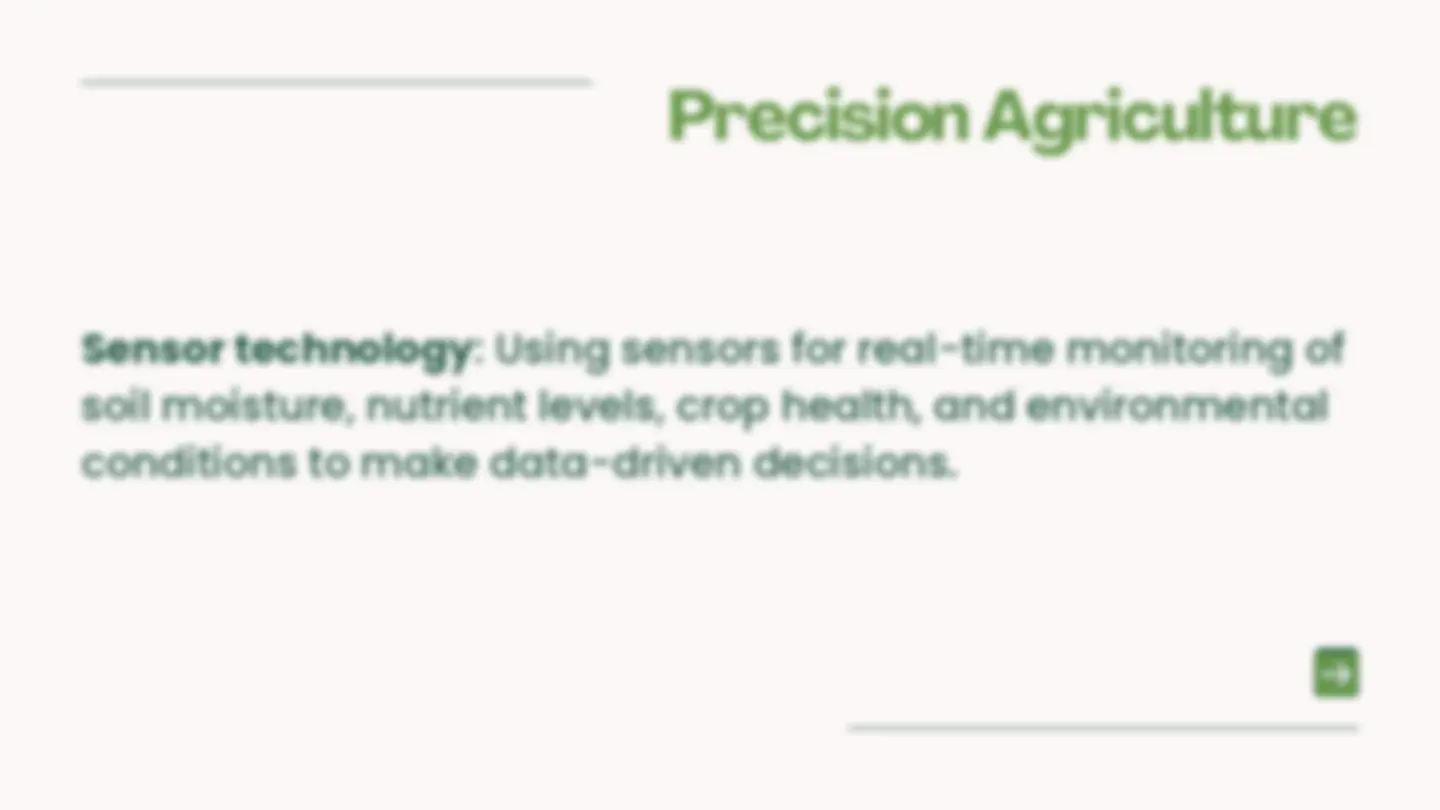
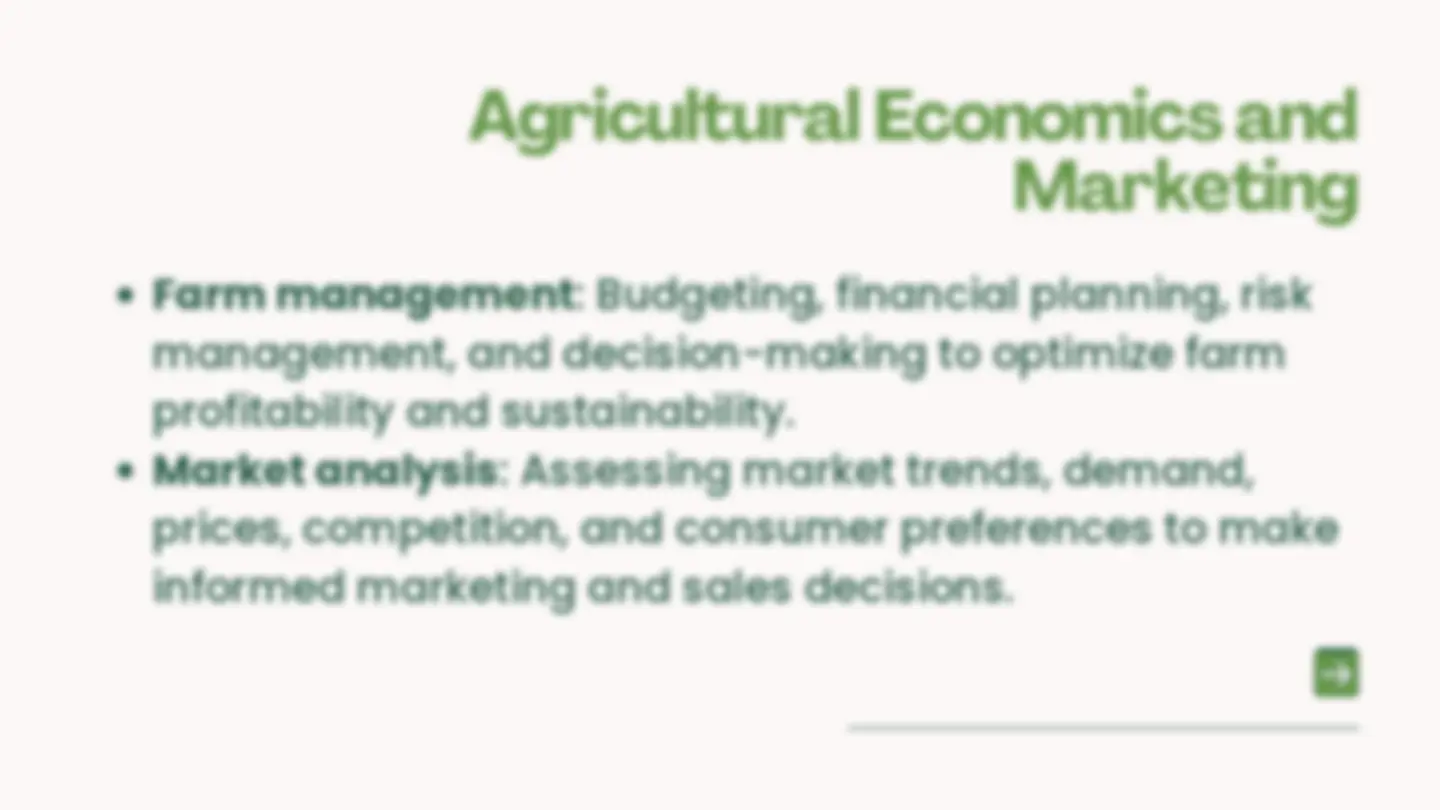
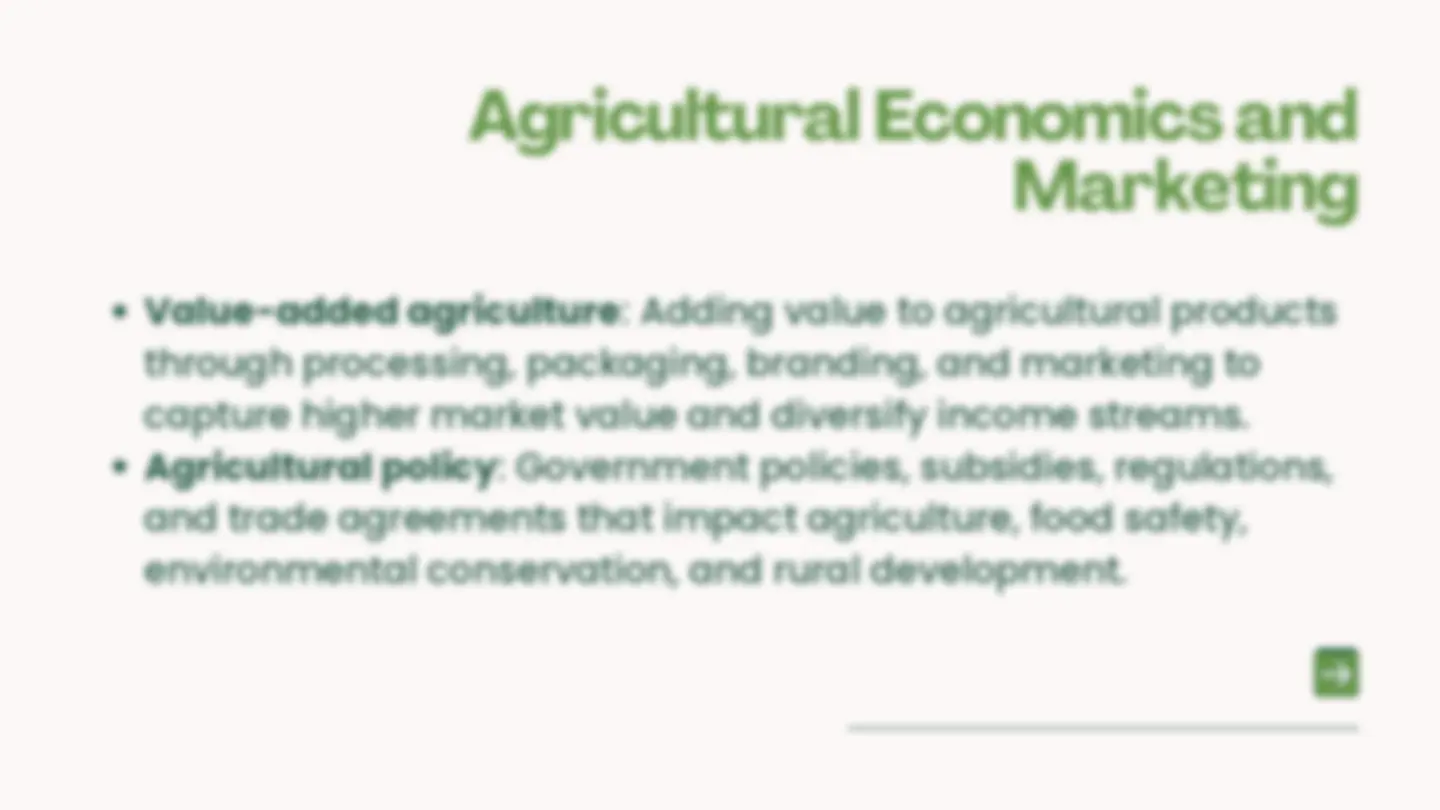
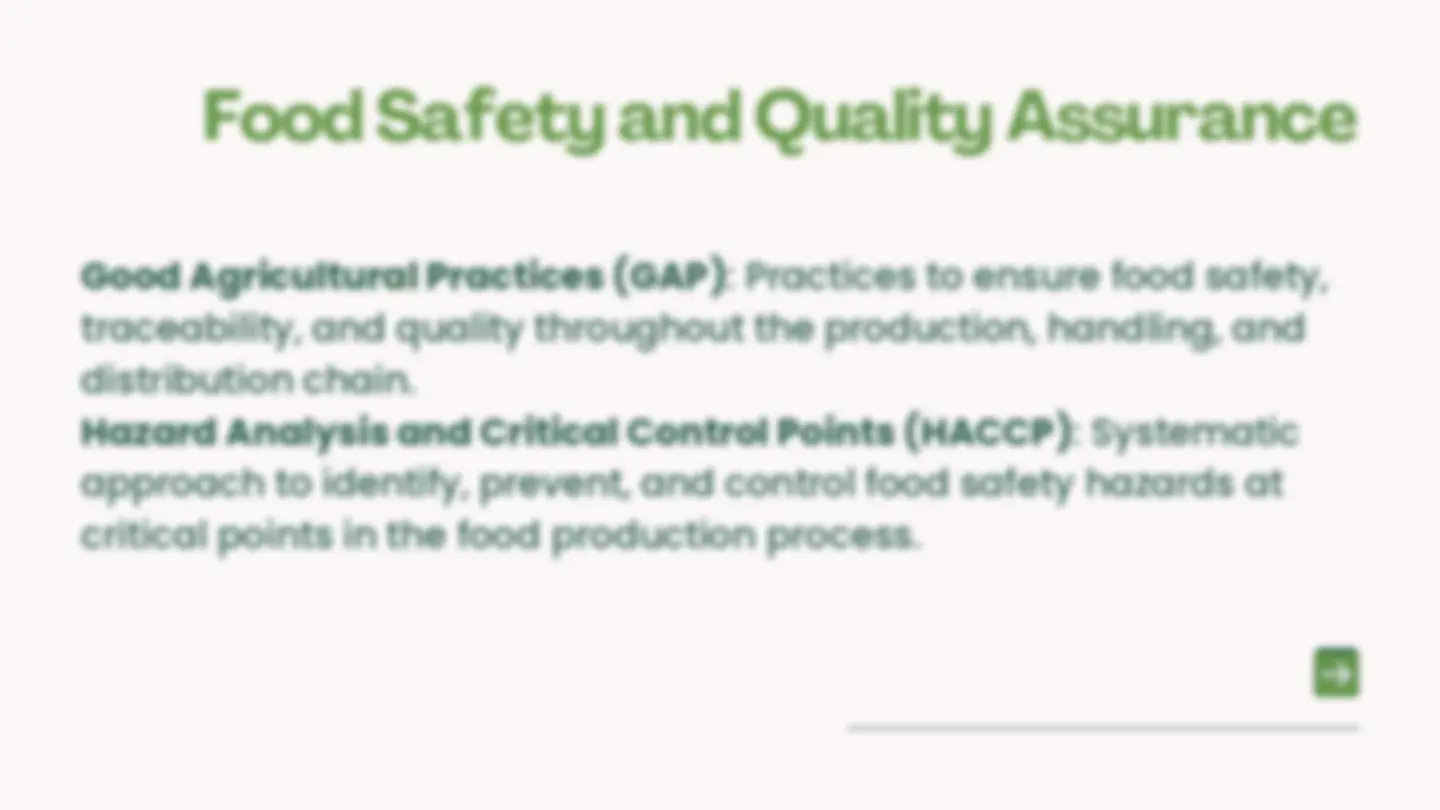



Study with the several resources on Docsity

Earn points by helping other students or get them with a premium plan


Prepare for your exams
Study with the several resources on Docsity

Earn points to download
Earn points by helping other students or get them with a premium plan
Community
Ask the community for help and clear up your study doubts
Discover the best universities in your country according to Docsity users
Free resources
Download our free guides on studying techniques, anxiety management strategies, and thesis advice from Docsity tutors
This presentation explores the field of agriculture, focusing on contemporary innovations, challenges, and sustainability practices.
Typology: Slides
1 / 18

This page cannot be seen from the preview
Don't miss anything!











Presented by: Abigail Atiwag
Agriculture is a broad field that encompasses various practices related to cultivating crops, raising livestock, managing land and natural resources, and producing food, fiber, and other agricultural products. It plays a crucial role in providing food security, supporting rural economies, and contributing to environmental sustainability. Here are some key topics in agriculture:
Animal husbandry : Raising and breeding livestock such as cattle, sheep, goats, pigs, poultry, and fish for meat, milk, eggs, wool, and other products. Grazing management : Rotational grazing, intensive grazing, and managed grazing systems to optimize forage utilization and pasture health.
Biological control : Using natural enemies (predators, parasites, pathogens) to control pests and reduce reliance on chemical pesticides. Disease resistance : Developing and using disease-resistant crop varieties and livestock breeds to reduce the impact of diseases.
Organic farming : Practices that avoid synthetic pesticides, fertilizers, and genetically modified organisms (GMOs), emphasizing soil health, biodiversity, and ecological balance. Conservation agriculture : Techniques like minimal tillage, cover cropping, crop rotation, and agroforestry to reduce soil erosion, improve water retention, and enhance biodiversity.
Farm management : Budgeting, financial planning, risk management, and decision-making to optimize farm profitability and sustainability. Market analysis : Assessing market trends, demand, prices, competition, and consumer preferences to make informed marketing and sales decisions.
Value-added agriculture : Adding value to agricultural products through processing, packaging, branding, and marketing to capture higher market value and diversify income streams. Agricultural policy : Government policies, subsidies, regulations, and trade agreements that impact agriculture, food safety, environmental conservation, and rural development.
Agriculture is a dynamic and diverse field that continues to evolve with technological advancements, environmental challenges, and changing consumer demands. Sustainable and innovative practices are essential for ensuring food security, environmental conservation, and economic development in agricultural systems worldwide.